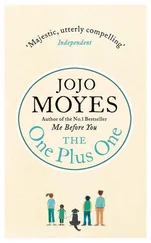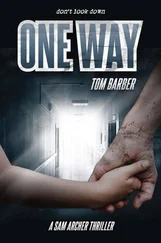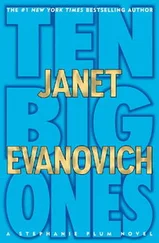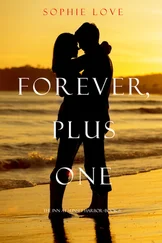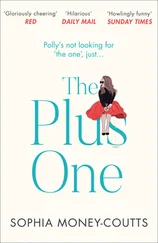“A man was killed last night!” Carella shouted.
“I know that, Steve,” Kling said. “But there are a lot of other names on that college program. And while we’re arguing here about what I did or didn’t do, our man might be out taking a potshot at another one of them.” Kling paused. “You want to argue, or shall we hit the phone book and try to locate some of the others?”
“For your information, Junior G-man, Meyer and I got to the squadroom at seven o’clock this morning, after spending all night with the family of Rudy Fenstermacher, who was killed last night because…”
“Steve, get off my back,” Kling said. “I’m not responsible for what happened last night!”
“Maybe you’re not!” Carella shouted.
“No maybes!”
“Okay! I’m trying to tell you we began checking out the names on that program the minute I found it on my desk. There were eleven people in that play, and six of them are already dead. Of the remaining five, we’ve been able to trace only two of the men. The third man isn’t listed in the phone book, and the women are probably married, with new names. We’ve already contacted the university, and they’re going to call back if they have any luck. In the meantime, we’ve called both of the men whose whereabouts are known, and they’re expecting our visit. Now, do you think if I gave you a name and address you could find your way to the right house and manage to ask the man some questions about…?”
“Listen, Steve,” Kling said, “you’re beginning to burn me up, you know that?”
“The man’s name is Thomas Di Pasquale. He played Fat Joe in the O’Neill play. His address is 409 Servatius, right here in Isola. He’s expecting you.”
“What do you want to know from him?” Kling asked.
“I want to know just what happened back in 1940.”
Thomas Di Pasquale lived in a luxurious apartment building on the city’s South Side. When Kling rang his doorbell that morning, he shouted, “Come in, come in, it’s open,” and Kling tried the knob and opened the door onto a wide, thickly carpeted entrance foyer, beyond which was a sunken living room, and a man on a telephone.
The man who had played Fat Joe in a college production years ago was now tall and slim, and somewhat over forty years old. He was wearing a silk dressing gown and had the telephone to his ear as Kling entered the apartment and closed the door and stood waiting in the foyer. Without looking in Kling’s direction, and without stopping his telephone conversation, Di Pasquale gestured to an easy chair opposite him, lit a cigarette, paused for a moment to allow whoever was on the other end to say something, and then said, “Hold it, Harry, hold it right there. That’s where we stop doing business. There’s nothing more to talk about.”
Kling took the seat opposite Di Pasquale, and pretended not to be listening to the conversation.
“No, Harry, but when you start talking in terms of forty G’s for someone of this guy’s standing and reputation, we got nothing further to say. So if you don’t mind, Harry, I’m very busy, and I’m late for the office now, so…”
Kling lit a cigarette while Di Pasquale listened for a few seconds. “Yeah, well, then, let me hear you really talking, Harry. Who? That’s a screenwriter by you? That’s a French fag by me. He can’t even speak English, you expect him to do a screenplay about the West? For Chrissake, Harry, make sense.”
He covered the mouthpiece, looked up at Kling, said, “Hi, there’s some coffee in the kitchen, if you want some,” and then immediately said into the phone, “What do I care if he won the French Academy Award? You know what you can do with the French Academy Award, don’t you? Look, Harry, I’m not interested in who you can get for forty G’s. If you want to hire a French fag to write a screenplay about the West, then go right ahead. And good luck to you.” Di Pasquale paused. “What do you mean, how much am I asking? Make me a sensible offer, for Chrissake! Start around, a hundred, and then maybe I’ll listen a little.” He covered the mouthpiece again. “There’s coffee in the kitchen,” he said to Kling.
“I’ve already had breakfast.”
“Well, if you want a cup, there’s some in the kitchen. What do you mean, he never got a hundred in his life? He got a hundred and a quarter from Metro the last time out, and the time before that he got a hundred and five from Fox! Now, you want to talk, Harry, or you want to waste my time? Well, what is it? Who? Harry, what do I care about Clifford Odets? I don’t represent Clifford Odets, and anyway, can Clifford Odets write a Western? Well, then, fine. If Clifford Odets can write anything, then you just go get Clifford Odets. Yeah, and see what he costs you! What? No. No, we’re starting at a hundred thousand, that’s where we start to talk. Well, you think about it, Harry, and give me a ring back. I’ll be leaving for the office in a little while. Please, Harry, don’t start with the old song and dance again. I don’t care if you’re gonna have Liz Taylor in the picture, which you’re not anyway. Stick Liz Taylor in front of the camera without lines to say, and see how long she can ad-lib, go ahead. Will you call me back? What? How much? Seventy-five? Don’t be ridiculous. If I even called him up and told him seventy-five, you know what he’d do? He’d go right over to William Morris tomorrow. That’s the truth. I wouldn’t insult him. Well, you think about it, I’ve got company. What? Yeah, yeah, six naked blondes, what do you think? We know how to live here in the East. Call me back, baby, huh? I wouldn’t steer you wrong, believe me, baby, have I ever sold you a lox? This guy writes like a dream, you could shoot the movie right off the paper it’s written on, you don’t even need actors, huh, baby? Good, good, I’ll hear from you, fine, good-bye, baby, yeah, at the office, so long, sure, baby, think about it, right, good-bye now, yeah, nice talking to you, so long, baby.”
He hung up and turned to Kling.
“Big jerk, he never made a good movie in his life. You want some coffee?”
“Thanks, I’ve had breakfast.”
“So have a cup of coffee, it’ll kill you?”
Di Pasquale turned and walked toward the kitchen. Over his shoulder he said, “What’s your name?”
“Detective Kling,” Kling yelled after him.
“You’re a little young to be a detective, ain’t you?”
“No, there are men my age who’ve…”
“Where’d you get that tan?” Di Pasquale shouted from the kitchen.
“I was on vacation. Just got back to work yesterday.”
“Looks terrific on you, kid. Blond guys look great with tans. Me, I turn red like a lobster. You take cream and sugar?”
“Yes.”
“All right, I’ll bring the works out. Seventy-five grand, he offers. I wasn’t kidding him. I call the writer with an offer like that, he’ll tell me to go straight to hell.” Di Pasquale came back into the living room carrying a tray with the coffeepot, the cups, and the cream and sugar. He put the tray down and said, “You wouldn’t prefer a drink, would you? No, too early in the morning, huh? What the hell time is it, anyway?”
“It’s nine-thirty, Mr. Di Pasquale.”
“Yeah. You know what time that guy called me? The guy working with you?”
“Carella?”
“Yeah, him. He called me at seven-thirty, the middle of the night! I woke up, it was so dark I thought I went blind.” Di Pasquale laughed and poured from the coffeepot. “So what’s up, kid?”
“Mr. Di Pasquale, were you in a play called The Long Voyage Home in 1940 at Ramsey University in this city?”
“Whaaaat?” Di Pasquale said.
Читать дальше

